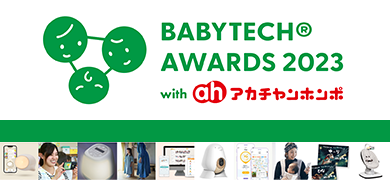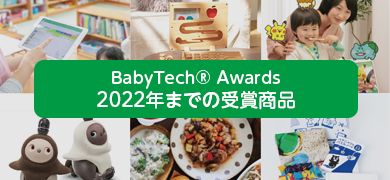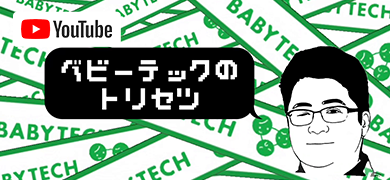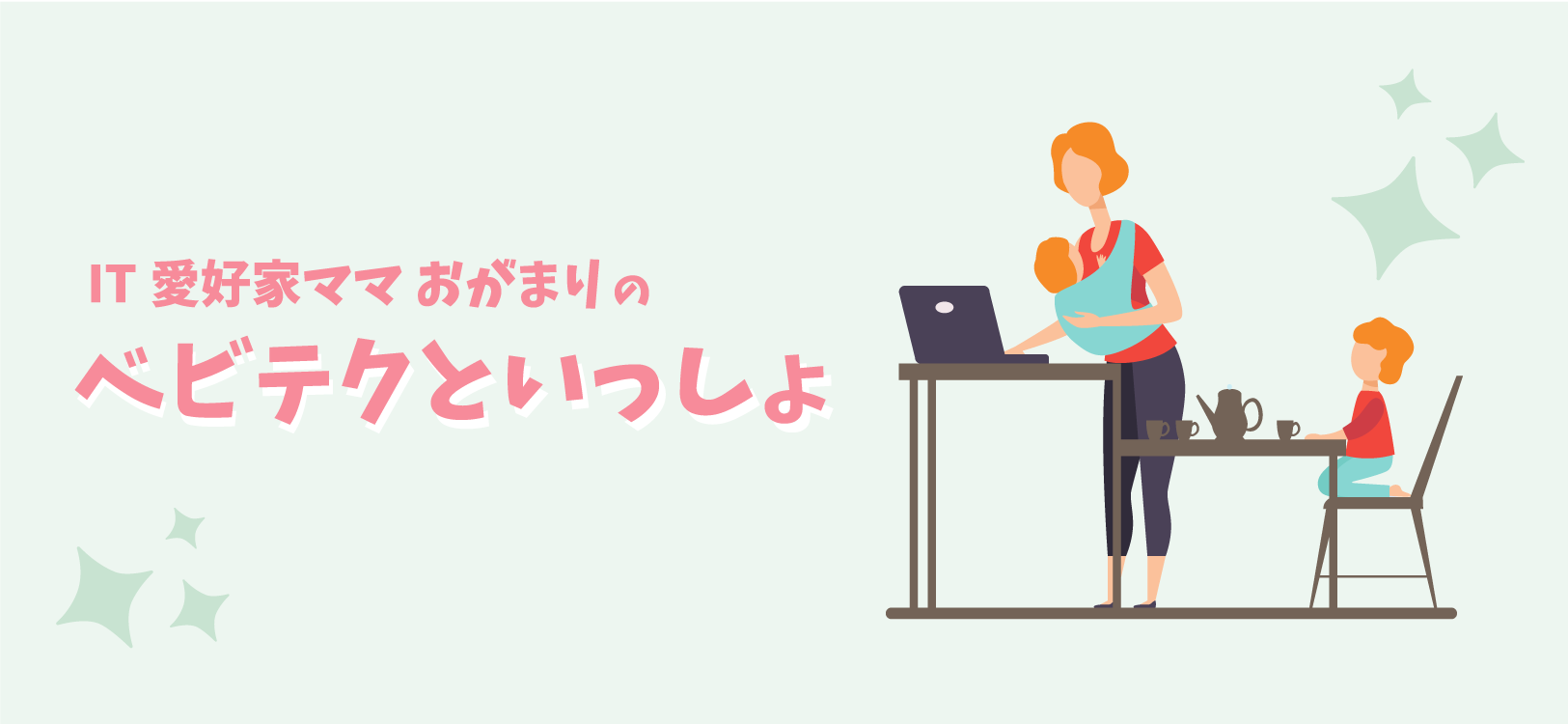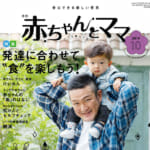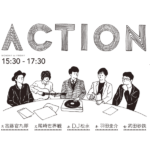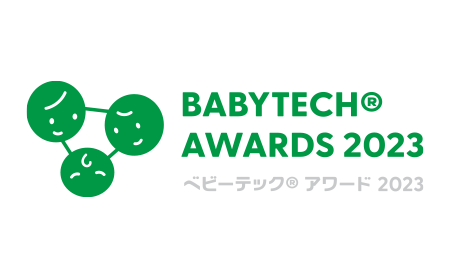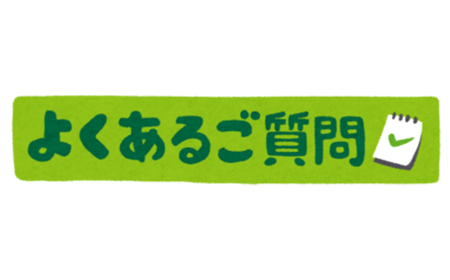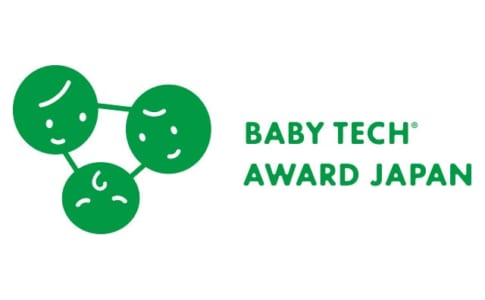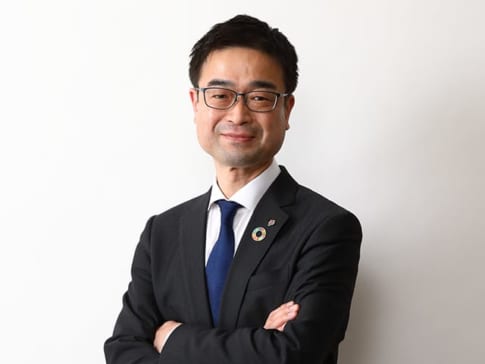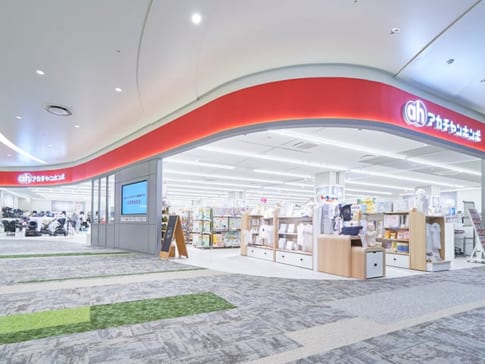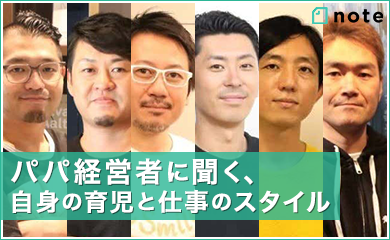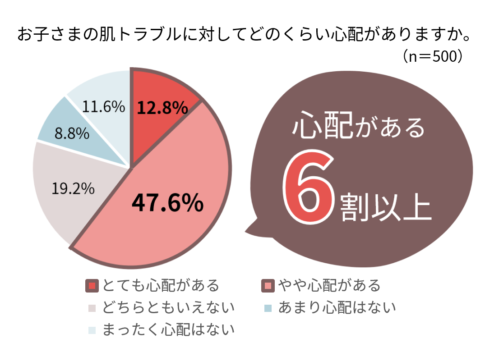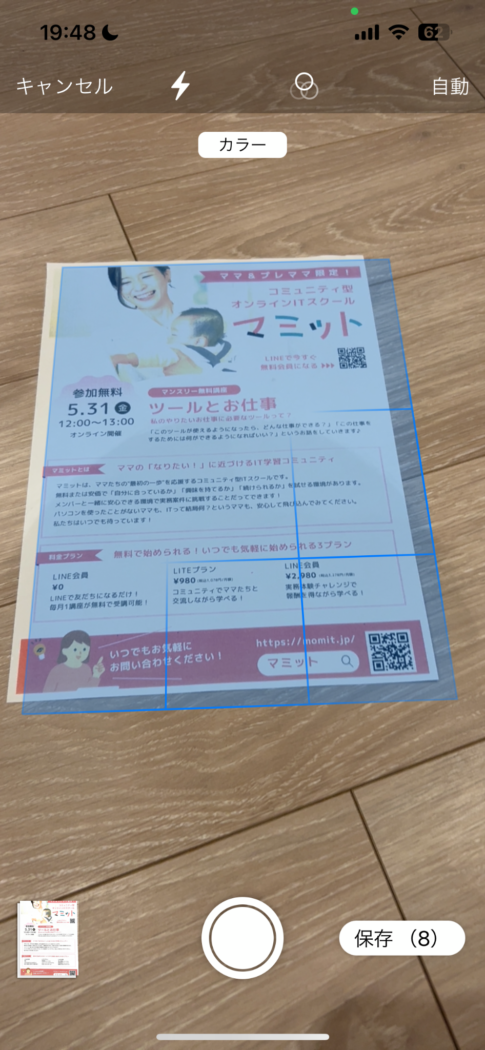- An app that allows you to easily record various information about your baby that you want to keep on your smartphone.
- Recorded data can be easily "aggregated and visualized" in graphs to clearly see growth and change.
- Analyzes big data gathered from users and provides various types of advice useful for childcare
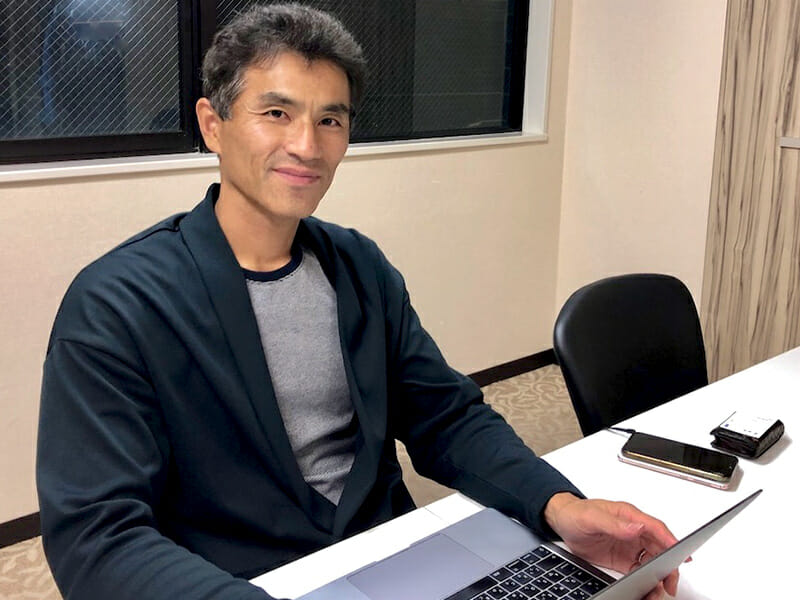
We spoke with...
First Ascent, Inc. REPRESENTATIVE DIRECTOR AND CEO
Mr. Tomoyuki Hattori
The birth of my own child was the catalyst for the development of this app.
Editor:Can you give us an overview of the Papa-to-Care@Baby Book?
Hattori: This is a "childcare record app" that records various things, such as the time the child went to bed, the time he or she woke up, the time and amount of milk he or she drank, the time he or she pooped, and the state of his or her poop. Originally, my wife had been keeping a handwritten childcare record, and I was watching her and thought, "Isn't there an app that can record this conveniently? I thought, "Isn't there an app for that? At the time (around 2012), there weren't many apps like that, and even if there were, they weren't very user-friendly. For example, I thought that if I recorded the amount of milk I gave my baby, it would automatically tally and graph the amount of milk she drank in a day, but there were almost no apps with that function. If there was no app that could "visualize" data like that, I thought I'd make one myself.
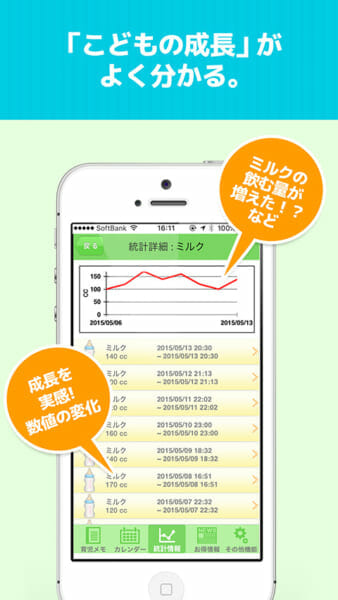
It graphs the "amount of milk" your baby has consumed and you can see it at a glance!
Also, my wife at the time was very stressed and irritable, and a few years after our first child was born, she said, "Now that I think about it, I might have had postpartum depression. That's one of the reasons why we decided to develop this app, because we thought that if we could visualize the childcare records, we would be able to understand the child's condition better and reduce my wife's anxiety.
Finally, from the beginning of the app's development, I was also thinking that we could solve some problems related to childcare by "utilizing big data". I was used to building evidence and handling data because I had completed graduate school and had done research at a company, so I thought that if I could do that, I could build value for society.
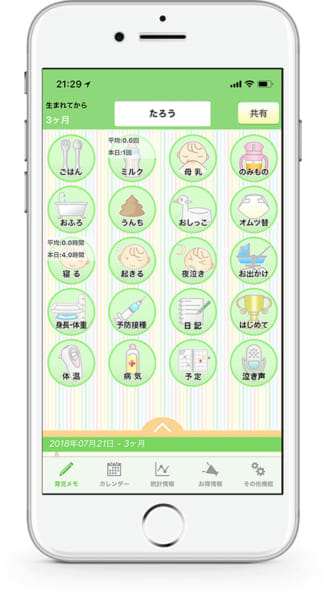
The menu you want to record is iconized and very easy to understand.
Editor: I saw your wife's handwritten childcare records earlier, and she kept very detailed data.
Hattori: Yes. But I don't think my wife is special. After we released "Papa-to-Care@Baby Notebook," we found that many mothers keep very detailed and frequent records. Initially, we thought that people who used the app would record everything in their free time, but most of the users kept records almost in "real time", such as when they gave their baby milk or changed a diaper. Thanks to the dozens of "records" that were taken every day, we were able to get a good understanding of the children's daily rhythms on the app, and furthermore, we were able to utilize this data as big data to realize various services.
Editor: The ability to record in real time with one hand using your phone is a unique advantage of the app.
Hattori: That's right. My wife used to write in a notebook by hand, but she would write things down whenever she had time. Now that we have a smartphone app, the hurdle of "recording" has been lowered, and I feel that we can now keep more detailed data.
Big data analysis", the biggest feature of the app, and its effects
Editor: There are a lot of apps similar to "Papa-to-Care@Baby Notebook" these days, but how is it different from them?
Hattori:I think it is the provision of various services based on "big data analysis.
Editor: When it comes to the "Papa-to-Care@Baby Notebook," the "Crying Diagnosis," which uses the baby's crying voice to tell you why he or she is crying, is wonderful.
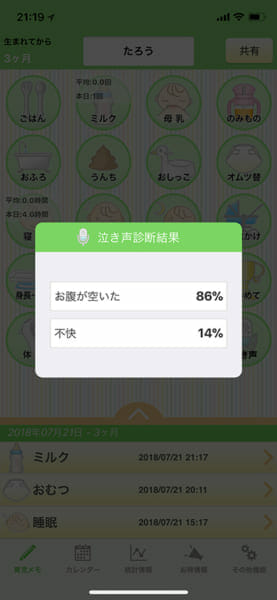
Analyze "baby's feelings" from "baby's cries.
Hattori: Thank you very much. Originally, we used an algorithm that analyzed "cries of children between two weeks and six months old," but the current version has gathered data from a cumulative total of more than 150,000 people, making it possible to analyze the cries of babies of a wider range of ages.
The app also analyzes the "frequency of night crying" and sends out a "night crying alert" notification for babies who cry a lot at night. When a baby cries at night, mothers have a very hard time because their sleep time is reduced. However, it's hard to know if your child cries more often at night, because you can't compare him/her to other babies in your household. The "Night Cry Alert" provides mothers with objective statistical data. Specifically, if a baby cries at night more frequently than the top 30% of babies of the same age, a "Night Cry Alert" will be issued.
The merit of this display is that it creates communication in families that previously left it up to the mother to deal with nighttime crying. In fact, in 60% of the families that received the alert, the couple talked about how their child seemed to cry a lot at night, and in half of these families, or 30% of all families, the father changed his behavior. In other words, they woke up when they cried at night and started making milk and holding their children....
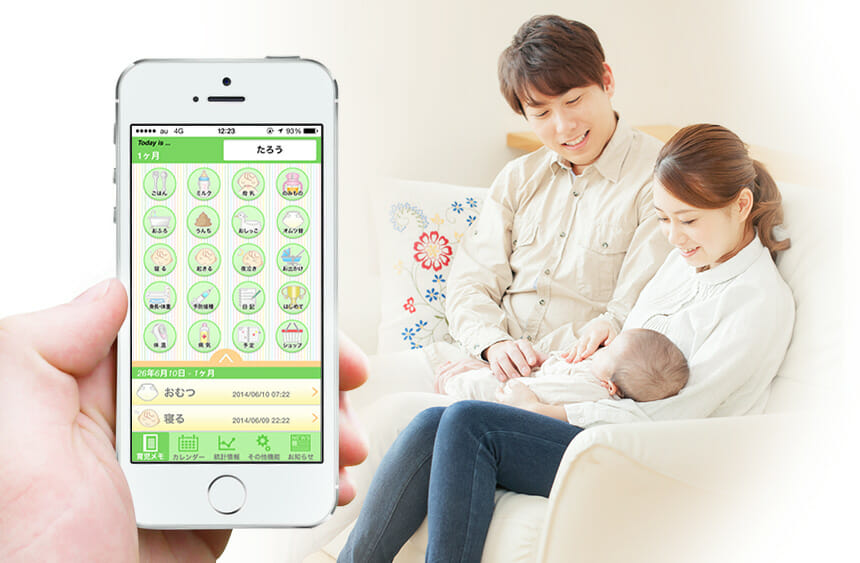
Night Cry Alert" supports "parenting as a couple
Actually, when my first child was born, I thought, "My child doesn't cry much at night. ......". However, according to my wife, the truth is that he cried intensely at night and she had a very difficult time. When we released this app and looked at the data we compiled, we understood at a glance the fact that babies really do cry a lot at night. Then I thought to myself, "I've been sleeping without noticing my child's crying at night. ......" I felt very remorseful, and with that penance in mind, I created this function called "Night Cry Alert. So you want mothers to use this feature to negotiate with fathers. After all, men tend to move more easily when confronted with "numerical facts.
Editor: How did you develop "Baby's Cry Diagnosis"?
Hattori: This is also my experience, but fathers feel very stressed when their babies are crying because they don't know why they are crying or what to do to make them stop. This was evident in our surveys, and when we asked for ideas for new services, people often asked us to tell them what their baby was crying about, like a "baulingual" (a toy that translates dog sounds). I also wanted to know the reason why babies are crying.
Furthermore, from a business standpoint, from the perspective of what field of research and development a company should conduct ......, there are not many companies in the world that can collect "a large amount of baby cry data" as we do. Also, compared to image deep learning, there are few examples of research on voice deep learning, especially non-verbal voice deep learning, so we thought that we could build a unique position in the world. I also felt strongly that if I was going to do something, I wanted to work on something unexplored that no one else had done yet, and this led to the development of "baby cry diagnosis.
The app's users' opinions have been buzzing on Twitter.
Editor: How many people use the Papa-to-Care@Baby Book?
Hattori: About 500,000 people.
Editor: What are some of the comments from people who have used the service?
Hattori:When you start up the Papa-to-Caregiver@Baby Book app, the icons that correspond to the content you want to record are displayed on the screen, so many people say that it's easy to record. You can also enter the "start time" and "end time" of the event you want to record (for example, breastfeeding), so people who just want to keep detailed data often choose our app. Also, "baby crying diagnosis" is a feature that other companies' apps don't have, so many fathers find it useful. In general, mothers spend a lot of time with their children, so they have a better idea of what they want their children to do and say, and they don't get upset by a little crying, but many fathers don't understand that, and they don't have the tolerance for crying. That's why we often hear that fathers sometimes leave their children in our care and cry, and after searching for something on ......, they use our app.
Another comment was that the "Baby Cry Diagnosis" changed the way she handled her child: ....... I used to nurse my baby when she cried, but the diagnosis showed that she wanted to sleep, so I gave her a gentle pat on the back, and she fell asleep easily. On the other hand, she didn't fall asleep no matter how much I held her and patted her back, but when the diagnosis of "hunger" came up, I nursed her and she fell asleep immediately.
In addition, on Twitter, tweets from people using the Night Cry Alert have received more than 10,000 likes! on Twitter. About 95% of the tweets were positive and about 5% were negative, but when I looked at the actual tweets, I found that they were tweets from fathers who said, "If they put this feature on, I'll have to help raise my child. But when I looked at the tweets, I found that they were actually tweets from fathers saying, "If they put this feature on, I'll have to help raise my kids. In any case, many fathers "underestimate" the fact that their mothers are unable to sleep because of their babies' crying at night. If you know that mothers aren't sleeping as much as they think they are through "night crying alerts," you'll be a little kinder.
New hardware born from "baby cry diagnosis technology
Editor: Could you tell us about your company's future initiatives?
Hattori: Recently, our company's efforts were selected by the Ministry of Economy, Trade and Industry (METI) for its "Monozukuri Startup Ecosystem Development Project. This is a subsidy project for the development of hardware that incorporates our baby cry diagnosis technology. By placing this device by the baby's bedside, it will be able to automatically detect nighttime crying and analyze the crying voice, and check whether the crying voice is different from usual.

Mr. Hattori talks about the new hardware
Edit: So you can monitor your baby's cries 24/7 without having to use your phone!
Hattori: We plan to exhibit this at the world's largest consumer electronics trade show (CES), which will be held in Las Vegas, USA, in January 2020. We've also received a number of inquiries from overseas hardware manufacturers about this speech analysis algorithm. We're also working on another new project, which we expect to announce around April next year.
After the interview...
In fact, when we analyzed the cries of our one-year-old daughter with the "Papatto Childcare@Baby Book", it seemed to be correct quite often, and we were able to put her to sleep smoothly many times. I also felt that the "Big Data Analysis" called "Night Cry Alert" promotes cooperation between couples in raising their children, which is exactly what Baby Tech is ideal for. I'm now looking forward to the birth of a "new piece of hardware" that can be placed right under baby's pillow!
First Ascent Corporation official website https://first-ascent.jp/
Papatte Childcare @ Baby Notebook introductory website: https://papaikuji.info/

